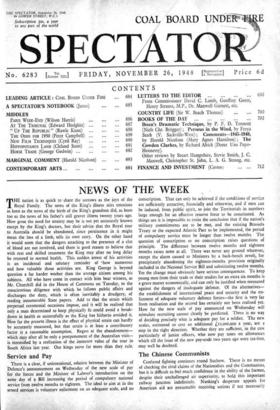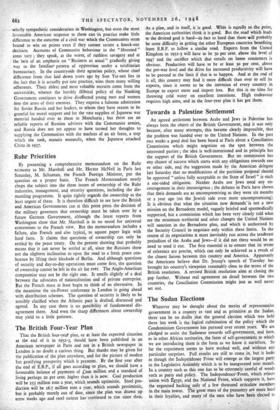The Chinese Communists
Confused fighting continues round Suchow. There is no means of checking the rival claims of the Nationalists and the Communists, but it is difficult to feel much confidence in the ability of the former, despite their unchallenged air superiority, to hold this important railway junction indefinitely. Nanking's desperate appeals for American aid are presumably receiving serious if not necessarily
wholly sympathetic consideration in Washington, but even the most favourable American response to them can in practice make little difference to the outcome of a civil war which the Communists seem bound to win on points even if they cannot secure a knock-out decision. Accounts of Communist behaviour in the "liberated" areas vary ; they speak, at the worst, of ruthless savagery and at the best of an emphasis on "Business as usual" gradually giving way to the familiar* pattern of oppression under a totalitarian bureaucracy. In the countryside their agrarian policy, whose chief difference from that laid down years ago by Sun Yat-sen lies in the fact that it is actually put into practice, wins them many willing adherents. Their ablest and most valuable recruits come from the universities, whence the harshly illiberal policy of the Nanking Government continues to drive disaffected young men and women into the arms of their enemies. They express a fulsome admiration for Soviet Russia and her leaders, to whom they have reason to be grateful for moral support and for the vast supplies of Japanese war material handed over to them in Manchuria ; but there are no reliable reports of Russian advisers with the Communist armies, and Russia does not yet appear to have turned her thoughts to supplying the Communists with the nucleus of an air force, a step which she took, mutatis mutandis, when the Japanese attacked China in 1937.





































